|
Rugby World Cup
'Through those rivalries is a bond -- I hope that continues'
Tom Hamilton
October 23, 2015
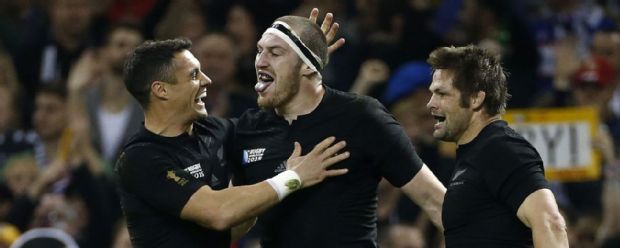 Brodie Retallick© Jean Catuffe/Getty Images Tradition and pre-conceptions over the second-row will be ruined on Saturday afternoon when New Zealand take on South Africa at Twickenham. Gone are the days where you pick one lock to be the physical, brutal presence and another to be the brains and the spindly technician. No greater demonstration of this will come in Saturday's semifinal. Watching on from the stands will be All Blacks great and World Cup-winner Ali Williams. He will be struck with a pang of nostalgia as he recalls his battles against Bakkies Botha and Victor Matfield -- the personification of that brains-and-brawn motif. In front of him instead will be a redefining of the traditional role of the locks by four giants: South Africa's Eben Etzebeth and Lood De Jager and New Zealand's Sam Whitelock and Brodie Retallick. And he will breathe a sigh of relief that he is merely a spectator. 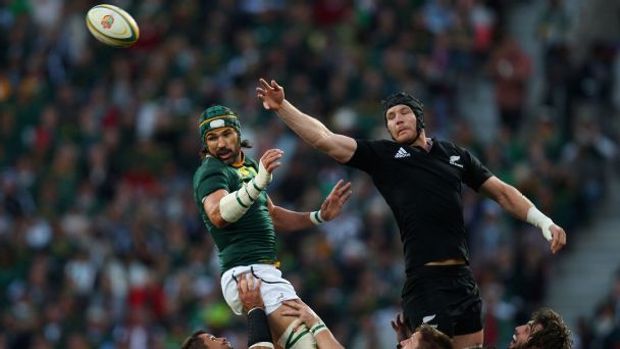 Victor Matfield of the Springboks and Ali Williams of the All Blacks contest the ball in the lineout© Phil Walter/Getty Images "It's the nature of the game. The game is moving to the stage where everyone has to be good at everything," Williams tells ESPN. "It's really exciting to watch and it's a relief that I don't have to play anymore, as these guys are seriously good.
"It's a new breed, the roles of a traditional four and five have gone. The lineout has sped up, the six and eight have more responsibility so therefore your locks -- the traditional guys like Victor and [England World Cup winner] Ben Kay -- can be not as good in the air as others can cover. "The lock now has to be good at lineout work, scrumming and defensively. The traditional mould is changing -- Brodie Retallick is one of the best over the ball outside of an openside." Whitelock made his Test debut in 2010. Retallick's came in 2012, the same year as Etzebeth, and Lood de Jager's was handed to him in 2014. Together, they are the baby-faced lineout assassins. Their rise has challenged the role of the enforcer. Instead the locks of 2015 have to boast every characteristic, the power and the skulduggery -- the Hercules and the Hercule. 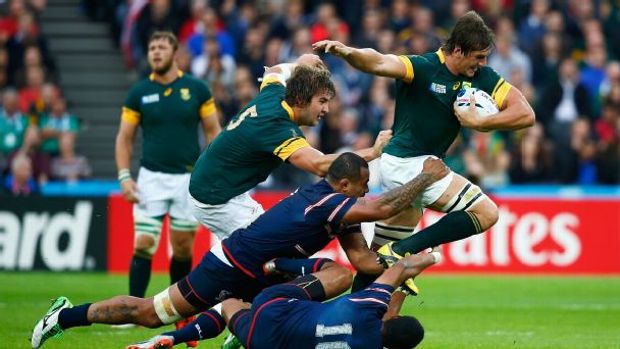 Eben Etzebeth of South Africa© Mike Hewitt/Getty Images
In the midst of the battlefield over pilfered ball will be Retallick, a glasses-wearing scholar of the game but an indomitable player. He is the man who bashfully got Courtney Lawes' name wrong during England's tour of New Zealand last year, but then ended 2014 as the IRB's Player of the Year. And opposite him will be Springboks lock Etzebeth who has all the cards stacked in his favour to be the first player to reach 150 Test caps -- he is the idealistic model of a second-row and sits on 71 caps aged 27. Alongside him will be De Jager; that Matfield is on the bench is an unbound compliment to him. All Blacks coach Steve Hansen is blindingly aware of what is coming on Saturday in the combination of Retallick and Whitelock on Saturday afternoon. "Our guys have got a bit of a combination going and these two guys from South Africa are starting to get one going," said Hansen. "They've got an old bloke on the reserve bench [Matfield] who's not bad either.
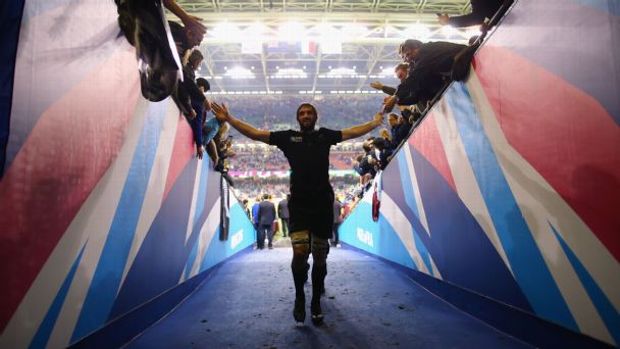 Sam Whitelock of New Zealand© Richard Heathcote - World Rugby/World Rugby via Getty Images "They're two combinations that are very, very good and vital to both teams. Lineout ball in today's game is probably the most important ball you can get. And disrupting it is important. So it will be a good battle." It is a sentiment Williams agrees with. "Sam and Brodie are both workhorses which is surprising for a locking combination as normally you have a power athlete and another who is a workhorse," Williams says. "But like Etzebeth and De Jager, they all get around the track all right. "Both are in the Bakkies Botha mould, with that physicality, but both sets are forming a partnership. They are a different combination to your standard mould and the way they play the game is impressive." The battle may yet be decided on the flanks with talents like Julian Savea and Bryan Habana, the two fly-halves -- Dan Carter and Handre Pollard -- will have their say, as will the respectives front-rows, the clandestine opensides and the various distribution channels, but at the centre of it all will be these four locks. The bad news for the rest of the contenders is that they will still be around in four years' time on Japanese turf. 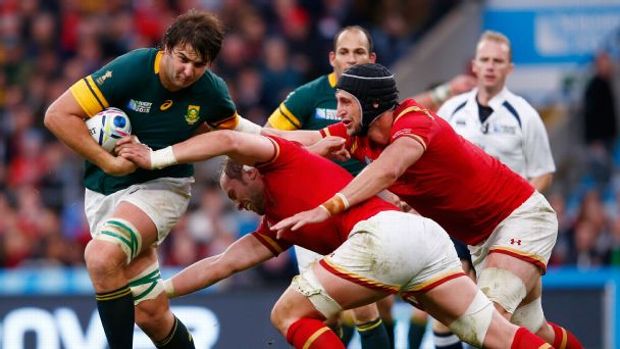 Lodewyk De Jager of South Africa© Chris Lee - World Rugby/World Rugby via Getty Images Williams, however, hopes the moral roots of the game will be maintained. "Playing against South Africa was always a great experience -- sometimes they'd get it over us and on other occasions we'd get it over them. When we played it was a partnership thing. I have nothing but fond memories of facing Bakkies and Victor. They're two of my great mates outside of the guys I played alongside with in New Zealand. "Through those rivalries is a lot of a bond. I hope that continues. I have nothing but fond memories of playing against those two clowns." © ESPN Sports Media Ltd.
|
Live Sports
Communication error please reload the page.
-
Football
-
Cricket
-
Rugby
-
- Days
- Hrs
- Mins
- Secs
F1 - Abu Dhabi GP
Abu Dhabi Grand Prix December 11-131. Max Verstappen ()
2. Valtteri Bottas (Mercedes)
3. Lewis Hamilton (Mercedes)
4. Alexander Albon ()
5. Lando Norris ()
6. Carlos Sainz Jr ()
-
ESPNOtherLive >>
Boxing - Nelson v Wilson; Simmons v Dickinson; Joshua v Gavern (Metro Radio Arena, Newcastle)
Golf - Houston Open
Snooker - China Open
Tennis - Miami Open

